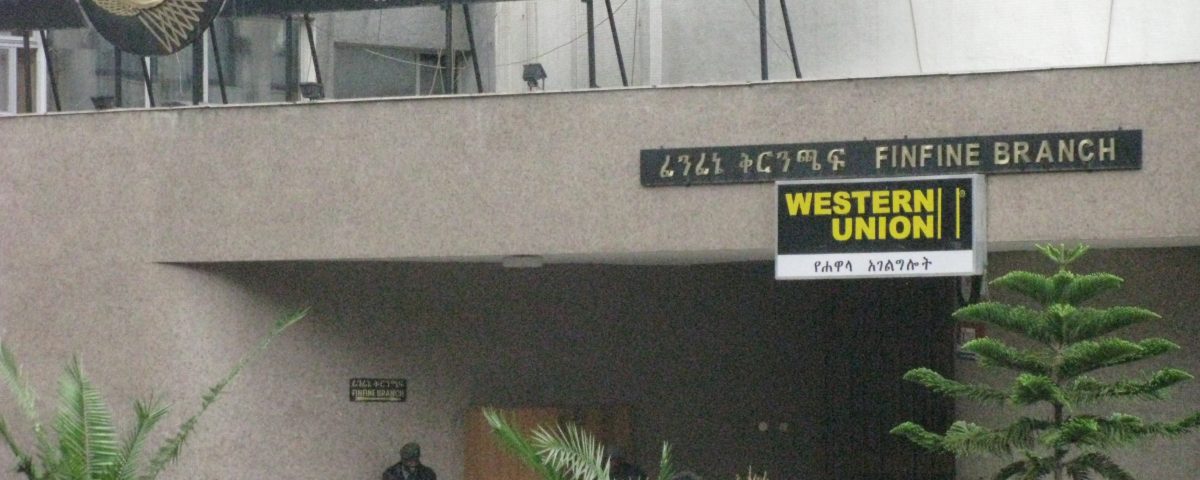Africa Update: National Bank of Ethiopia applies new policies following the 15% birr devaluation

Article Update: Why You Should Invest In Dividend Stocks
October 18, 2017
Africa Update: Ghana becoming visible investment destination for Nordic countries
October 18, 2017The financial sector supervisory body, National Bank of Ethiopia (NBE) is going to apply numerous laws on the banking sector following the implementation of the third official devaluation in the middle of the week.
The central bank disclosed 15 percent birr devaluation against major hard currencies on Tuesday October 10. As of October 11 the bank is expected to enforce some new regulations on private banks to mitigate the effect of the devaluation and improve the hard currency generation of the government.
On the meeting held on Tuesday 10th October afternoon at the central bank NBE, officials told the private bank managements that NBE will apply the lending rate limitation for the selected sectors.
Sources said that NBE has approved the maximum lending growth rate for the banks on all businesses except the export sector.
Currently the lending rate is fully liberalized, and hence there is no lower/upper lending limit rate in the country. So far each bank determines the lending rates.
According to sources, banks will be allowed to provide 16.5 percent additional loan for business based on the outstanding loan that each banks provided in the previous years.
This new law does not limit the loan rate for business that engages with the export sector.
Experts said that the NBE direction targets to shrink the money supply in the market enabling the bank to control the inflation rate.
“It also encourages investment in the export sector,” experts told Capital.
However the new loan rate limitation provides good opportunity for the economy. It will also have impacts on other economic pillars including the service sector, agriculture, and other investments, according to experts.
“It is also against the NBE policy in the banking sector,” one of experts at the banking sector told Capital.
Since 2014 NBE has ordered banks to expand their branches by 25 percent each every year with the aim to boost the financial inclusion and expand deposit mobilization.
As per the NBE policy the deposit accumulation is growing significantly in the past few years.
“Banks’ profit is mainly dependent on the interest from loan. To expand their lending they are working on mobilizing massive deposit from the general public,” experts said.
“But the current law will push banks to slow down their efforts and decrease their investment towards deposit mobilization,” experts added.
“We will be cost effective regarding our deposit mobilization since we cannot transfer the collected money to lenders,” bankers said.
It will also work against the National Financial Inclusion Strategy that NBE introduced a week ago.
Sources said that the 16.5 percent loan rule will apply to all banks including the state giant Commercial Bank of Ethiopia (CBE). Sources said that even though CBE is included on the new scheme it is allowed to provide adequate loan facility for projects that are run by the state or public enterprises.
According to experts, the outstanding credit of banks in the current trend was growing by 30 percent every year.
But the NBE’s new direction limits the outstanding loan growth rate to 16.5 percent.
Interest rate.
In relation to the devaluation NBE has also increased the interest rate presentation for saving. According to the NBE rule, the minimum interest rate has increased to 7 percent from the current five percent.
In 2010 the interest rate had increased by two percent from the long existing three percent.
The interest increment is also considering the management of inflation rate and to encourage the public to save its money with banks instead of circulating it in the market, experts said.
However, the savings interest rate increment will also contribute to increased interests on loan by the banks. Currently banks earn up to 17 percent interest from loan, while they are paying up to 12 percent for time deposit.
Windfall
The other big issue that sources told Capital about is that the government will take all the windfall profit that banks get from the current devaluation.
On its first windfall profit tax that the country implemented about seven years ago, banks have been paid 75 percent of the wind fall gain from the 2010 devaluation that devaluated the country’s currency by 17 percent.
Sources said that NBE has already told bankers that they will transfer the entire gain from the devaluation. The income tax proclamation amended in 2010 stated that windfall profit obtained from businesses will be prescribed a directive to be issued by the Minister and will be liable to tax at a rate to be determined in such directive.
Proclamation No. 693/2010 that amended the income tax stated that the Minister (Ministry of Finance and Economic Cooperation) may take into consideration the nature of the business and prescribe different amounts to be considered as windfall profit and rates for different types of businesses.
Forced Hard Currency Market
On the week the devaluation has become one of the top issues, the NBE has also applied another hard currency rule on banks to improve its hard currency reserve.
According to the new scheme, all banks have to sell 30 percent of their hard currency to NBE.
Sources said that the hard currency banks secure via any kind of options will be partly transferred to NBE, while the central bank will pay the equivalent in birr.
Banks will earn hard currency via remittance, export or SWIFT and other mechanism. According to the new system they will transfer their 30 percent to the government.
Nonetheless the time frame for the transaction between NBE and banks is not disclosed yet. The current official devaluation is undertaken for the third time since free market was introduced about 26 years ago. The first was undertaken early after the downfall of Derg and the second devaluation followed in 2010.
The International Monetary Fund and World Bank have been frequently insisting on the government to devaluate its currency significantly. But the government preferred to make it gradually. For instance when the government devaluated its currency by 17 percent in 2010 the money purchasing power against USD has been reduced to 16.5 birr from 13.5 birr before the devaluation. But before the current devaluation the USD has been exchanged by close to 23.8 birr, and has decreased by more than 45 percent compared with the 2010 devaluation rate.
Based on the past experience the current devaluation has imposed anxiety on the society in relation with price escalation in every basic commodity and services including house rentals.
While the government argued that the inflation would not occur in a significant manner.
But the past month inflation rate disclosed by the Central Statistical Agency disclosed indicated that the inflation rate has returned to double digit after October 2015.
The government stated that it will never increase the oil price due to this devaluation.

